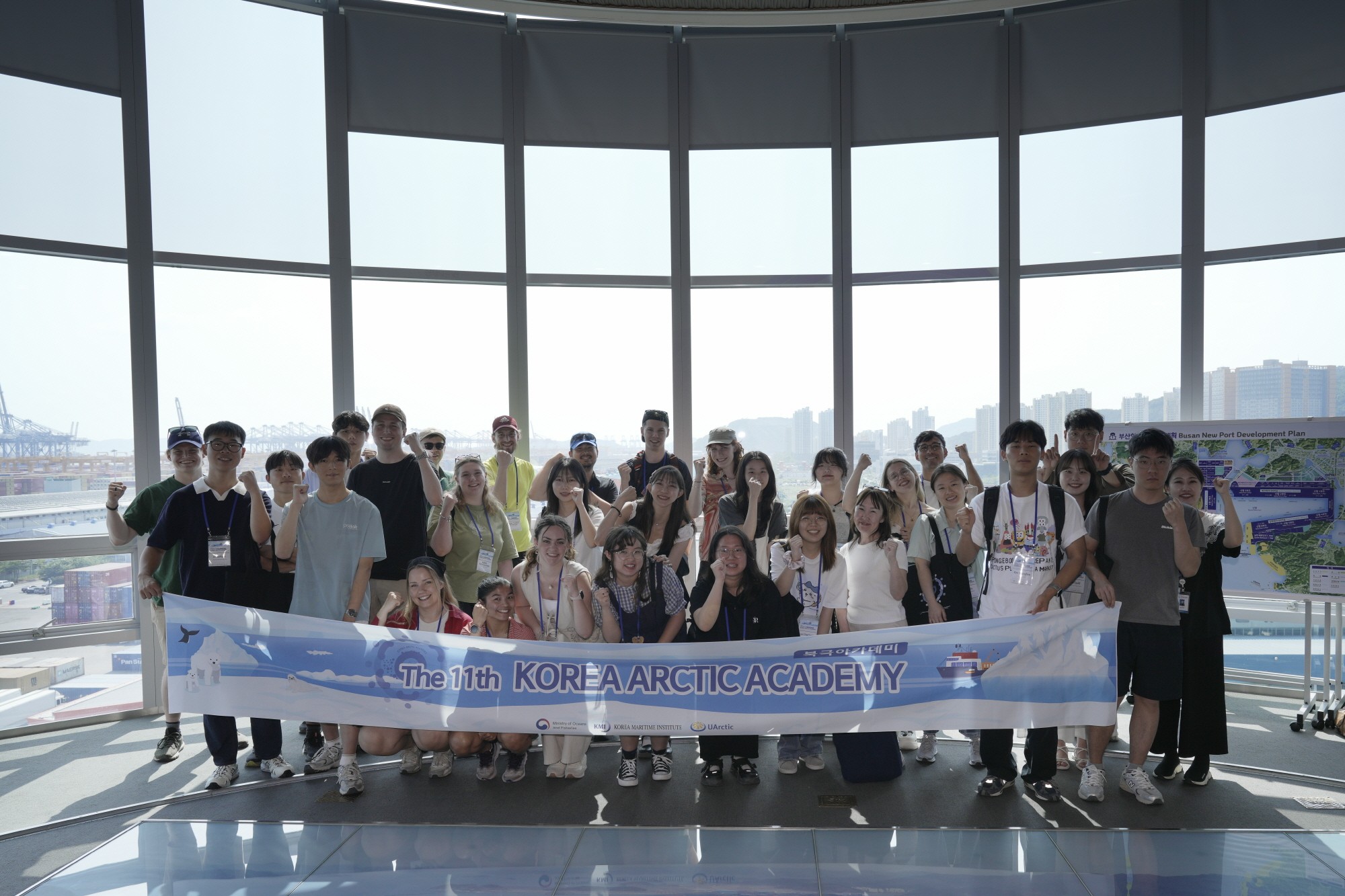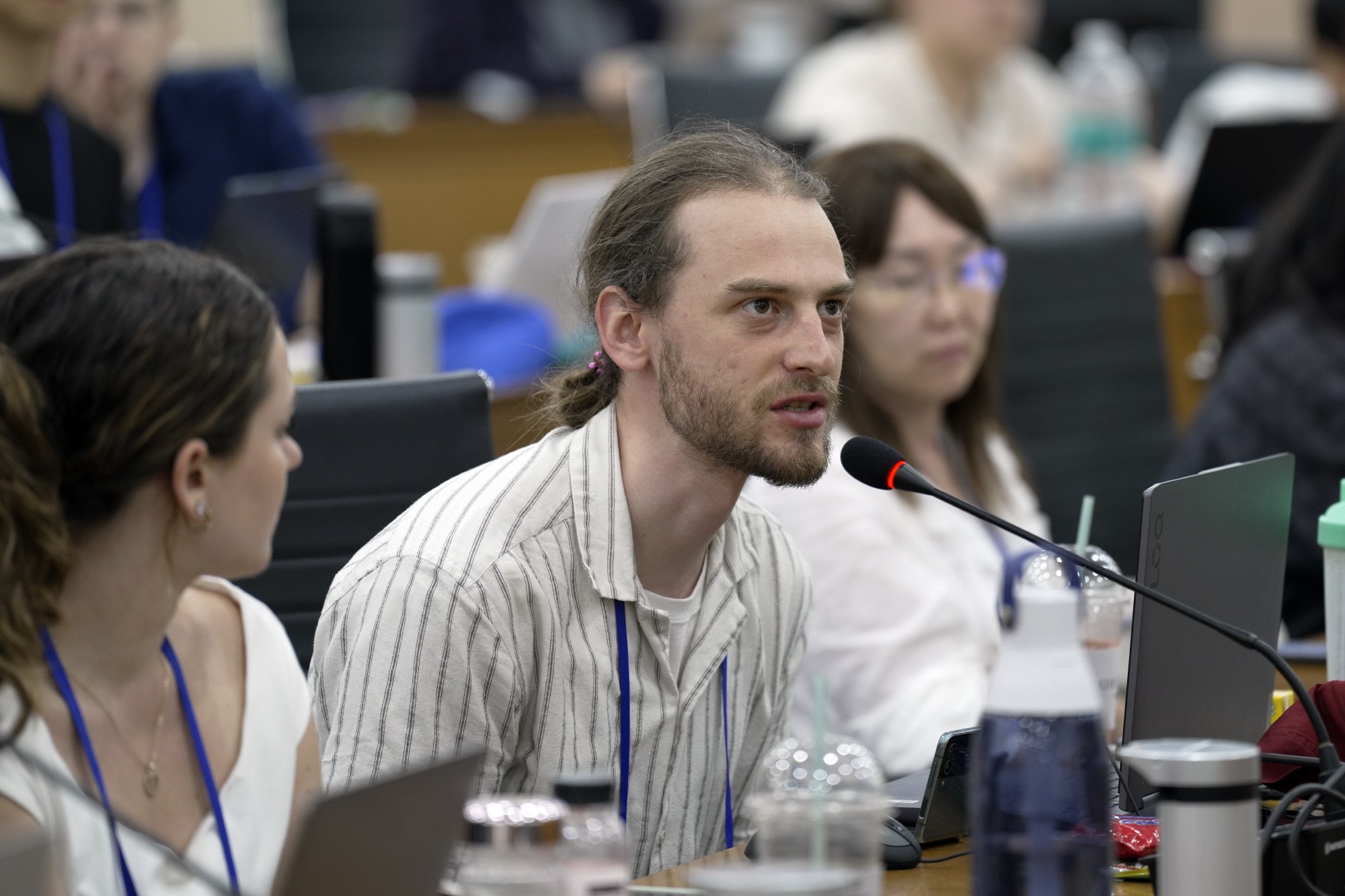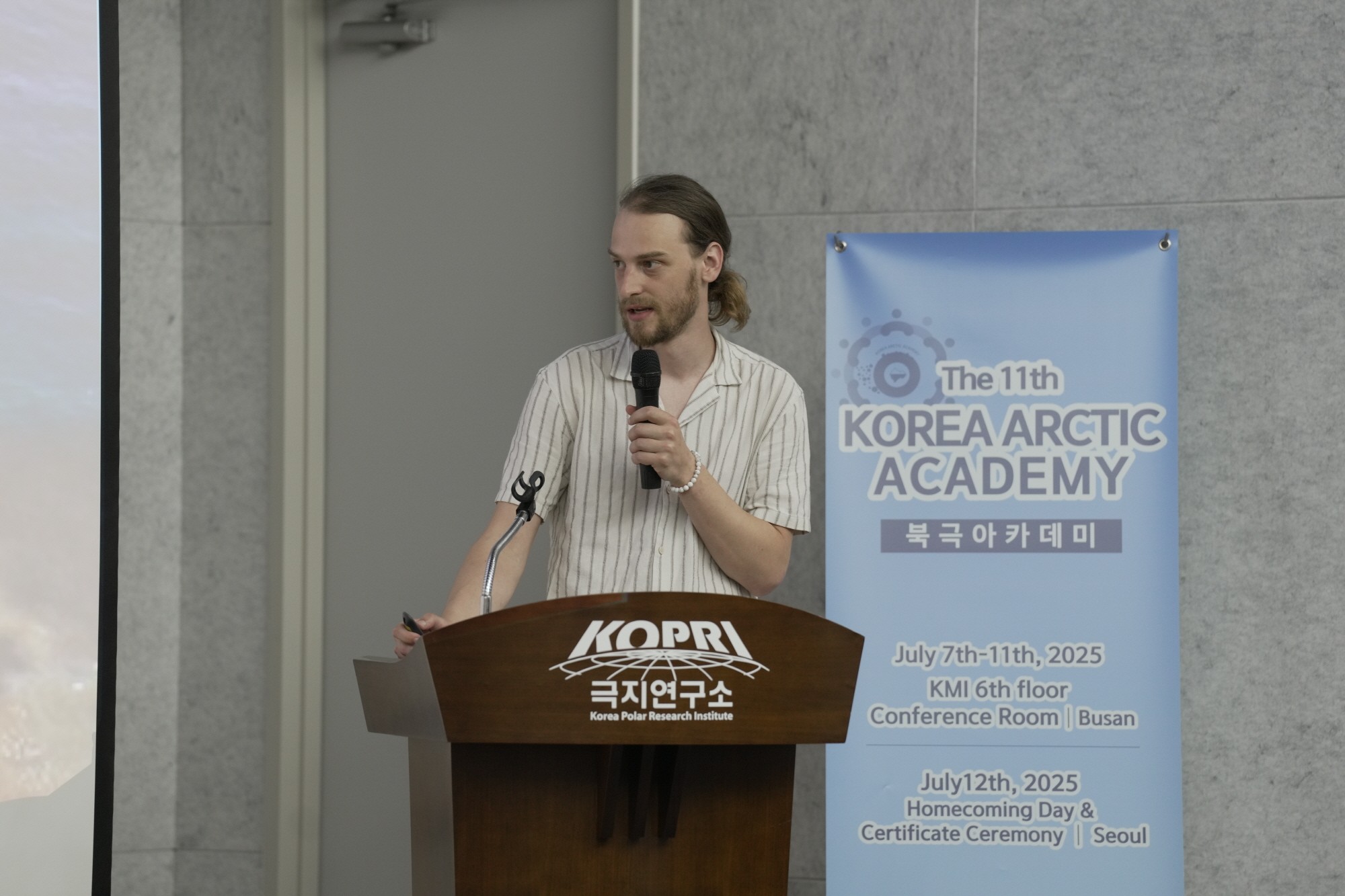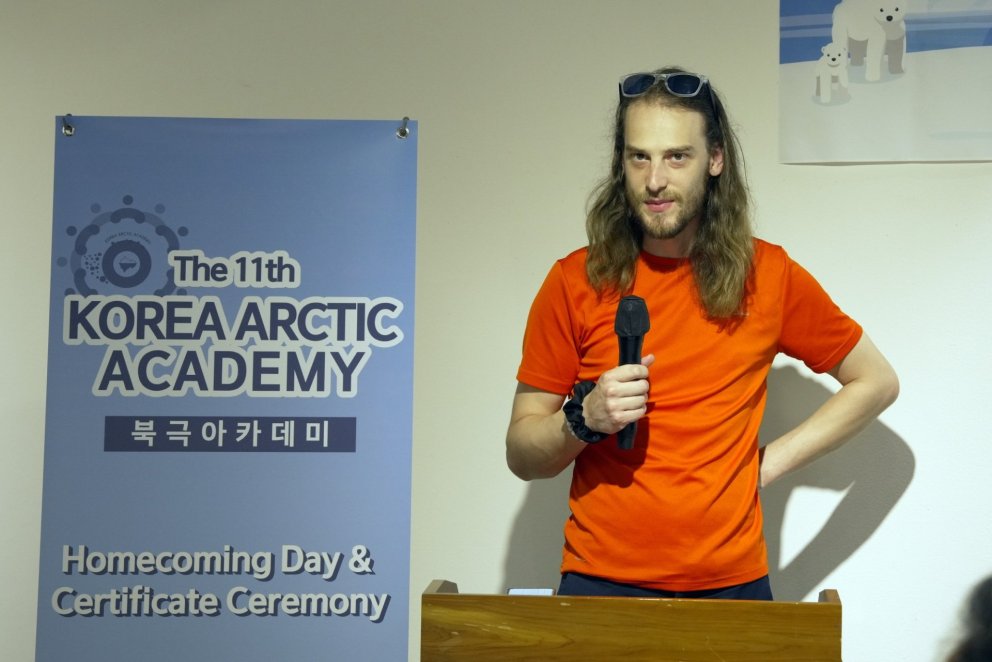Student Story: Korea Arctic Academy
I’m Gustav Hvalkof Kristensen, a CMM student from Denmark and I attended the Korea Arctic Academy this summer.
About the program
The 11th Korea Arctic Academy is a 6-day study program organised by Korea Maritime Institute (KMI) and Uarctic. It lasted from July 7th to 12th 2025. The course covered topics such as: Arctic Policy, Sustainable Arctic, Arctic Science, Arctic Governance, and Arctic Society. The course is related to Arctic Governance and Policy, an important aspect in my master’s program, Coastal and Marine Management at the University Centre of the Westfjords.

The program included a variety of lectures relating to Arctic Governance and South Korea’s research and role in the Arctic as one of 13 Arctic Observer states. Also included in the program were field trips, presentations and discussions at Busan New Port with the Busan Port Authority in which we learnt about the newly created Harbour in Busan and their ship building expertise, announcing the almost finished development of their second icebreaker research vessel, purposely built for the Arctic. Secondly, we visited Korea’s Polar Research Institute (KOPRI) in Incheon, where we attended a presentation from the institutes’ deputy president.
The total number of participants was 31, with 16 university students from South Korea and 15 international students from Arctic universities. There were student representatives from 7 of the 8 Arctic member states these being US, Canada, Denmark, Norway, Finland, Iceland and Russia. The student participants backgrounds were very diverse (including 2 or 3 indigenous people from areas in Canada and Russia) and study fields were not necessarily pertaining to Arctic studies.
The first day of the program we attended lectures regarding “Key Policies of the Arctic States” , day two was centred around “Arctic Governance, Industry and Science” day three were lectures surrounding “Current Issues in the Arctic”, day four was a field trip to Busan North Port and Busan New Port with the Busan Port Authority, day five was another site visit this time to Korea’s Polar Research Institute and workshop presentations from all the participants. The final day of the course was a cultural experience and certification ceremony to Cultural Heritage Sites. Each day started between 9am and 10am, participation was mandatory and would finish between 6pm and 7pm after which was designated free time.
There was no official reading list prior to the program, however participants were encouraged to read up on research regarding the following topics:
- Arctic Science-Related Fields
- Arctic Industrial and Technological Fields
- Arctic Policy and Humanities-Related Fields
The final 5-minute participant presentations had to be related to the topics and were judged by a panel of 3 Arctic experts from KOPRI and KMI (70%) as well as peer evaluation from the 31 student participants (30%).
The course required a final assessment based on student participation and presentation on an Arctic related topic. The final evaluation criteria were based on; lecture attendance (40%), participation in Q and A sessions (20%) and final assignment (presentation) evaluation (40%). I completed the course with 100% participation/attendance and a presentation on the increased emergence of Harmful Algal Blooms in a warming Arctic climate.
Critical Reflections
 The 11th Korea Arctic Academy was an extraordinary experience which combined very passionate individuals from South Korea and students across the Arctic states. I was thrilled to engage in deeply political discussions with my peers as well as gauge an understanding of South Koreas intentions when it comes to the future of the Arctic. Each international student was given a South Korean “host” who would guide me through Busan and tell me about life in South Korea. Culturally, it was an enriching experience and professionally it was a great networking opportunity not just with the international Arctic students but also with the local Korean students.
The 11th Korea Arctic Academy was an extraordinary experience which combined very passionate individuals from South Korea and students across the Arctic states. I was thrilled to engage in deeply political discussions with my peers as well as gauge an understanding of South Koreas intentions when it comes to the future of the Arctic. Each international student was given a South Korean “host” who would guide me through Busan and tell me about life in South Korea. Culturally, it was an enriching experience and professionally it was a great networking opportunity not just with the international Arctic students but also with the local Korean students.
The course itself (from my personal perspective) was focused on promoting Korea’s influence and role in the Arctic, which to be slightly critical, veered towards heralding their ship building expertise and the potential capital interests for a shorter trading route through the Arctic to European harbours. I felt there was limited focus on the potential conflict and tensions between Europe, US and Russia, and promoting knowledge sharing between the participants. More focus was seemingly on the opportunities that would arise from melting sea ice providing a more direct trading route for Korean trade in Europe and less so on the detrimental environmental implications this would have as well as the impact increased Arctic activity would have on the indigenous people that live off the Arctic.
In Conclusion
I thoroughly enjoyed the experience as a guest in Korea, I met a lot of young, dedicated individuals that made me optimistic about the future of the Arctic however, the coursework was fairly limited to a 5-minute presentation from each participant which seemed rather short for anyone to truly showcase their talents and opinions.

